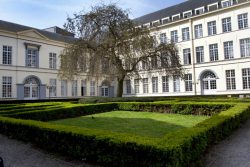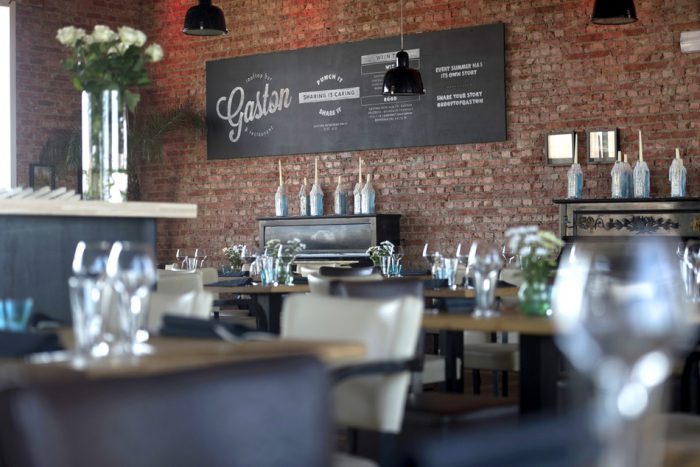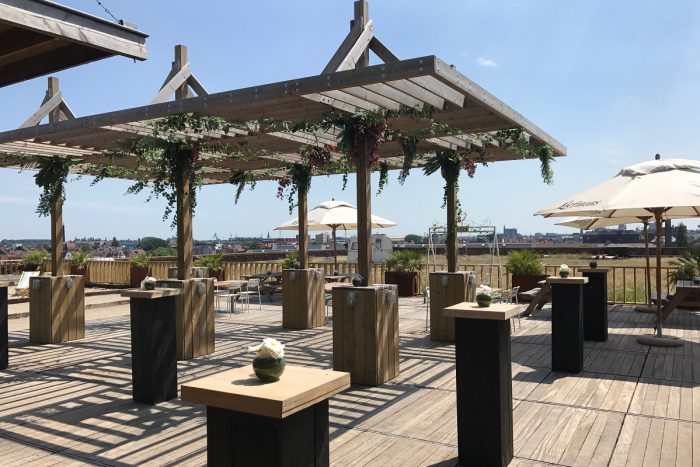30th anniversary celebration
CPS INTERNATIONAL CONFERENCE
‘Street policing in a smart society’

Tuesday September 17th 2019 – Ghent University (Campus Aula, Universiteitsstraat 4, 9000 Gent)
Conference in cooperation with the Working group on Policing of the European Society of Criminology ESC and the Scottish Institute for Policing Research (SIPR)
Police and policing services face increasing challenges as our society has evolved and is evolving on a daily basis towards a more complex, diverse, enhanced and digital (in short: smart) society in which technology and digital evolutions play a crucial role. Societal changes imply and require changes in police and policing, yet adapting to these fast-changing contexts is not as easy as it may seem.
We do see important oscillations in police organizations all over the world in general and in Western European countries in particular. Often, these changes are set up with a view on effectiveness and efficiency (in many cases accompanied by a centralization of police services). Terpstra, Fyfe & Salet, 2019 argue that these changes might generate some unintended changes in the police organization. They stipulate that the police have become more at a distance, more impersonal and formal, less direct, and more decontextualized (Terpstra, Fyfe & Salet, 2019; Terpstra, 2018; Terpstra & Fyfe, 2014, 2015)). The abstract police are also less dependent on personal knowledge of officer(s), as this is increasingly being replaced by ‘system knowledge’, framed within the ‘logic’ and categorizations of computer data systems (Ericson & Haggerty, 1997 as cited in Fyfe et al, 2019).
In spite of these organizational adaptations, some authors say that dramatically little has changed in regard to policing. Loftus (2008) for example explains that the adaptations remain mostly surface level changes, that have not changed the intrinsic nature of police forces. Police culture, in her view, is therefore still associated with cynicism, suspicion, machismo, and a crime-fighting mind-set. Other authors still consider the male dominated managerial culture of the police as well (Silvestri, 2018, Osterlind and Haake, 2010), although there are, undoubtedly, positive evolutions in diverse fields, such as the gender element and the opportunities for ‘outsiders’ to enter the police force (though both groups still stumble upon a number of difficulties) (Silvestri, 2018).
O’Neill and Fyfe (2017) signal other tensions in the field of policing such as the impact of private policing on the policing landscape (that in many cases has evolved towards a plural policing landscape). On a more specific level, issues concerning the increased demands for police education, the impact of technology on policing and legitimacy, the problematic search for human capital,… also urge us to look ahead and to challenge police researchers and practitioners to contemplate on the current strains on policing.
In this conference, we aim to grasp the different evolutions and non-evolutions that surround policing in the current social and societal climate, and stimulate readers to think about the future of policing, taking the changed contexts and challenges into account.
After the conference all conference attendants will be invited to join the 30 years celebration party at Gaston Rooftop Bar in Ghent.
Programme
Chair: Marleen Easton (Ghent University, Belgium)
9:30: Welcoming on behalf of the Flemish Centre for Policing and Security CPS
Marleen Easton (Ghent University, Belgium) on behalf of the Flemish Centre for Policing and Security CPS
9h40: Welcoming on behalf of the ESC Working Group on Policing
Tom Cockcroft (Leeds Beckett University, UK) on behalf of the ESC Working Group on Policing
9h50: ‘Abstract Police’ Text abstract police
Jan Terpstra (Radboud University Nijmegen, Netherlands), Nicholas Fyfe (University of Dundee, Schotland) and Renze Salet (Radboud University Nijmegen, Netherlands)
10h20: Police Culture Download presentation
Tom Cockcroft (Leeds Beckett University, UK)
10h50: Coffee break
11h15: Gender equality Download presentatie
Ulrika Haake (Umeå University, Sweden)
11h45: Plural Policing Download presentation
Megan O’Neil (Dundee University, Scotland)
12h15: Legitimacy and Technology Download presentation
Liz Aston (Edinburgh Napier University – SIPR, Scotland)
13h00-14h00: Lunch
14h00-15h00: Workshops 1, 2, 3 & 4 (parallel workshops)
- Workshop 1: Academic panel session: Predictive policing in the big data era (only one session) (abstract)
This academic panel session focuses on predictive policing, big data and new technologies. Each of the authors will offer a different yet complementary view on these topics, by applying advanced techniques.
Chair: Wim Hardyns, Institute of International Research on Criminal Policy (IRCP),Ghent University
Panel Papers: Powerpoint presentation
New and emerging data sources for spatio-temporal analyses: Opportunities and threats for big data policing
Thom Snaphaan (speaker); Wim Hardyns, Institute of International Research on Criminal Policy (IRCP), Ghent University
Social capital variables at the neighbourhood level as predictors in a predictive policing model
Anneleen Rummens (speaker); Wim Hardyns, Institute of International Research on Criminal Policy (IRCP), Ghent University
Automated Suspicion: Offender-Based Predictive Policing in the Age of Big Data
Bob Rigo, Institute of International Research on Criminal Policy (IRCP), Ghent University
- Workshop 2: Workshop Policing-Science nexus (abstract)
This workshop is being set up as a roundtable in which 5 members from both professional groups will provide input for our discussion. What they all have in common is experience in stimulating the policing-science nexus and being an instigator in setting up dialogues between academics and practitioners. We asked them to reflect upon their main experiences.
Chair: Marleen Easton, Professor, research group ‘Governing & Policing Security’ (GaPS) at the Department of Public Governance & Management, Ghent University, Belgium
Panelists:
Chris Bombeke, Senior Security expert, ex Securitas
Stanny De Vlieger, First Chief Commissioner, Director, Federal Judicial Police of the province of Antwerp, Belgium
Arne Dormaels, Director Safety and Security, VIAS Institute, Belgium
Rebecca Wallis, Associate Lecturer, TC Beirne School of Law at the University of Queensland in Brisbane, Australia
Janine Jansen, Lecturer, Avans Hogeschool, Den Bosch, The Netherlands
- Workshop 3: Police education in Europe… on its way to Bologna II? (abstract)
Chairs: Sofie De Kimpe, Professor, University of Brussels (VUB) and Marc Bloeyaert, policy officer at CPS
Presentation by Marc Bloeyaert and Niene Copman: Police (basic) training in European countries: Powerpoint presentation
Panel discussion with the following panellists:
Koen Milis (Director Campus Vesta – Police School of Antwerp, Belgium)
Dirk Van Nuffel (Chief Superintendent, Head of Local police zone of Bruges, Belgium)
Bram Lembrechts (International relations, Applied security studies, VIVES University college, Belgium)
- Workshop 4: Police Discretion within the local police (abstract)
In this workshop, we will take a closer look at the topic of police discretion. In two short presentations, current research projects related to police discretion will be outlined. These studies will be discussed and reflected upon by a panel of both academics and police professionals.
Chair: Jelle Janssens, Professor, Institute of International Research on Criminal Policy (IRCP),Ghent University
Speakers:
Yinthe Feys, PhD Researcher, Institute of International Research on Criminal Policy (IRCP),Ghent University Powerpoint presentation
Ines Saudelli, PhD Researcher, research group Crime & Society, University of Brussels (VUB) Powerpoint presentation
Panelists:
Jeroen Maesschalck, Professor, LINC, University of Leuven
Kenneth Coigné, Head of local police (police zone Arro Ieper)
Maria De Sterck, Head of local police (police zone Hamme-Waasmunster)
Yinthe Feys, PhD Researcher, Ghent University
Ines Saudelli, PhD Researcher, University of Brussels (VUB)
15h00-16h00 : Workshops 2, 3 & 4 (parallel workshops)
16h15-17:00 : Discussion with panel and audience
Panel:
- Jan Terpstra (Radboud University Nijmegen, Netherlands),
- Philip Stenning (Griffith University, Brisbane, Australia)
- Adam Crawford (University of Leeds, UK)
- Paul Ponsaers (Prof. Emeritus Ghent University)
Moderator: Jenny Fleming (University of Southampton, UK)
Download here the album of the conference!
Evening programme: party at Gaston Rooftop Bar in Ghent
After the conference all conference attendants are invited to join the 30 years celebration party at Gaston Rooftop Bar in Ghent.
18h00: Reception with speeches and awards
19h30: Standing buffet
21h30: Party
Download here the album of the 30 years celebration party!
Venues
Conference: Ghent University
Law & Criminology Faculty – campus Aula
Universiteitstraat 4, B-9000 Ghent
Auditorium NB I
Public parking facilities: Parking Kouter, Parking Center, Parking ‘Het Zuid’. It is also possible to park your car at Gent Dampoort station and then take a bus to the city centre. For those who join us at the party, a shuttle bus can bring you from the conference venue to the party venue (Gaston Rooftop bar) and back to the city centre or Gent Dampoort station.

30 years CPS celebration party: Gaston Rooftop Bar



Photos

